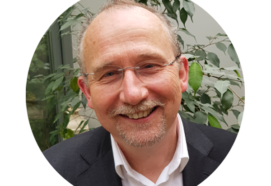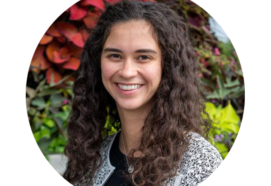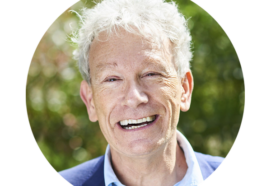Over 1000 miles from ACAMH HQ, situated in the centre of the Mediterranean, Malta may seem like an improbable place to find an ACAMH branch.
The outpost was established when the current chair, Nigel Camilleri, a consultant child and adolescent psychiatrist born and raised on the island, returned to Malta after seven years working in the UK.
“When I moved back to Malta I realised education in child mental health was lacking quite a bit,” said Nigel. “We organised our first ACAMH conference in April 2015. It was a two day conference in general child and adolescent psychiatry and we had around 200 delegates in the audience.”
“That was the beginning of ACAMH in Malta.”

The branch currently has around 20 members, ranging from consultant and trainee psychiatrists and academic psychologists through to social workers and speech and language therapists. As well as being a lot warmer than the UK, the clinical approach in Malta can be different too. “The evidence base is talked about but it isn’t put into practice,” said Nigel. “If you haven’t attended a conference for the last few years then your prescribing practice might follow what you learnt years ago,” he said. “Some people working with children prescribe tricyclic antidepressants in Malta, which is not something seen in the UK or a number of other countries.”
That is why the Maltese branch is focussing its energies on providing regular CPD opportunities, with an emphasis on emerging areas where the island lacks specialist expertise, like gender dysphoria.
“It’s all to do with education and standards, and trying to bridge that gap”
There was no postgraduate psychiatric training in Malta until 2008 – those that wanted to practice psychiatry had to go abroad first. When people returned to practice they bought with them a medley of ideas and approaches. “This is where ACAMH has an important role” said Nigel “it’s all to do with education and standards, and trying to bridge that gap.”
But it’s not just practices that are different on the island – it’s patients too.
“It was good fun,” said Nigel, of his childhood growing up on the island. “School finished around two o’clock. You’d spend the rest of the time playing football in the streets, or in summer you’d go swimming.”
Culture influences psychology, and although Nigel’s impression is that patterns of mental health need on the island are similar to the UK, he has detected tangible differences in parenting and community support.
He contrasts a general “boundaries-based” approach to parenting in England with a Maltese parenting style “more based on emotions and less on rules”. He thinks this creates a tendency towards a more ambivalent parent-child relationship in the UK, compared to a typical Maltese parent-child relationship, which is more likely to feature anxious avoidance.
A young Maltese person’s dependence on their parents may also enhanced by a culture in which many live at home well into their mid-thirties – be it for religious, practical or emotional reasons, Nigel said.
“The other thing is probably the community atmosphere” Nigel said. “So if your parents have disowned you, you probably have a cousin or an uncle who will support you.”
He contrasts this with the UK, where conflict in the immediate family may be more likely to lead to young people living on the street.
The Maltese branch has ambitions to expand their masterclass offerings to members, making particular use of livestreamed events elsewhere to do so. They also hope to become registered as an NGO in Malta, giving them access to EU funding.
Discover more articles from The Bridge.



Discussion
Hi,
I am a Head of Department, Child Behaviour. I work in one of the government school colleges in Malta. I would like to pay an annual membership fee to ACAHM Malta to keep updated regarding latest literature, research and conferences. Can you kindly indicate which steps I should follow.
To join just visit https://www.acamh.org/join-us/ and select the Membership that best suits your needs